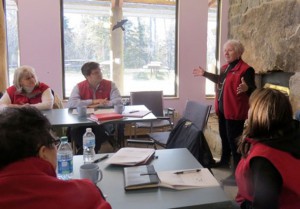
THUNDER BAY – BUSINESS – The Northern Policy Institute, in partnership with the North Superior Workforce Planning Board, have released a report on the labour market in Northwestern Ontario that details some of the unique characteristics of the region.
First, while the overall youth population is still facing challenges of out-migration, youth participation in the workforce and youth employment numbers are doing fairly well.
Second, while employment numbers in primary and manufacturing industries have obviously declined, there is some indication that the overall labour market is stabilizing and sustainable.
The report, Settling Down in the Northwest: Stability and Opportunity in the Northwestern Ontario Labour Market, was written by James Cuddy, Research Coordinator with Northern Policy Institute, provides an overview of the underlying trends of the regional labour market and how they differ markedly from those of the province as a whole.
“There is a strong case for continuing to connect youth to our communities through partnerships with industry and post-secondary institutions.” says Cuddy, “We need to recognize, however, that resource industries traditionally connected to Northern Ontario, industries that presented lucrative employment opportunities, may not have the competitive advantage that they used to.”
“This means getting creative about how we build a new plan for enhancing the region’s labour market. Keeping them here, keeping them employed, and building northern human capital.”
The paper explores population, employment, participation, unemployment, and trends specific to the youth labour market here in Northwestern Ontario.
Some of the key findings from the report include:
- Since 2001 the Northwest has continuously experienced annual youth out-migration. In 2013, there was a net decline of nearly 400 individuals aged 15 to 29, the majority of which were 20 to 24.
- For the youth that have remained here, however, participation and employment rates have been higher and unemployment rates lower than provincial and national levels.
- Employment rates in Northwestern Ontario have tended historically to be more volatile than for the province generally.
- Nevertheless, since 2008 and the last steep decline in the percentage of primary sector employees in the region, the Northwestern labour market has delivered very stable employment levels.
The report also examines the structure of the labour market, focussing on the distribution of employment among sectors and industries:
- There is a lack of employment growth in the goods-producing sector across Ontario since 1987. However, beginning in 2003, growth in this sector became considerably worse in the Northwest.
- Employment in primary industries has not been able to recover from a major decline experienced from 1989 to 1993, where the region shed nearly 80 per cent of jobs in primary industries.
- Employment in the Northwest’s services-producing sector has experienced modest growth, increasing by approximately 15 per cent from 1987 to 2013.
- Trade and healthcare industries have remained the top two employers since 1987. As of 2013, health care and trade made up 19 per cent and 16 per cent of total regional employment, respectively.
To read the full report on the Northwest labour markets, visit www.northernpolicy.ca.
About Northern Policy Institute:
Northern Policy Institute is Northern Ontario’s independent think tank. We perform research, collect and disseminate evidence, and identify policy opportunities to support the growth of sustainable Northern Communities. Our Operations are located in Thunder Bay and Sudbury. We seek to enhance Northern Ontario’s capacity to take the lead position on socio-economic policy that impacts Northern Ontario, Ontario, and Canada as a whole.
About North Superior Workforce Planning Board:
The North Superior Workforce Planning Board (NSWPB) is one of twenty-five Workforce Planning zones across Ontario, mandated through the Ministry of Training, Colleges and Universities to identify, assess and prioritize the skills and knowledge needs of community, employers and individual participants/learners in the local labour market through a collaborative, local labour market planning process.
@NorthernPolicy
/NorthernPolicy






